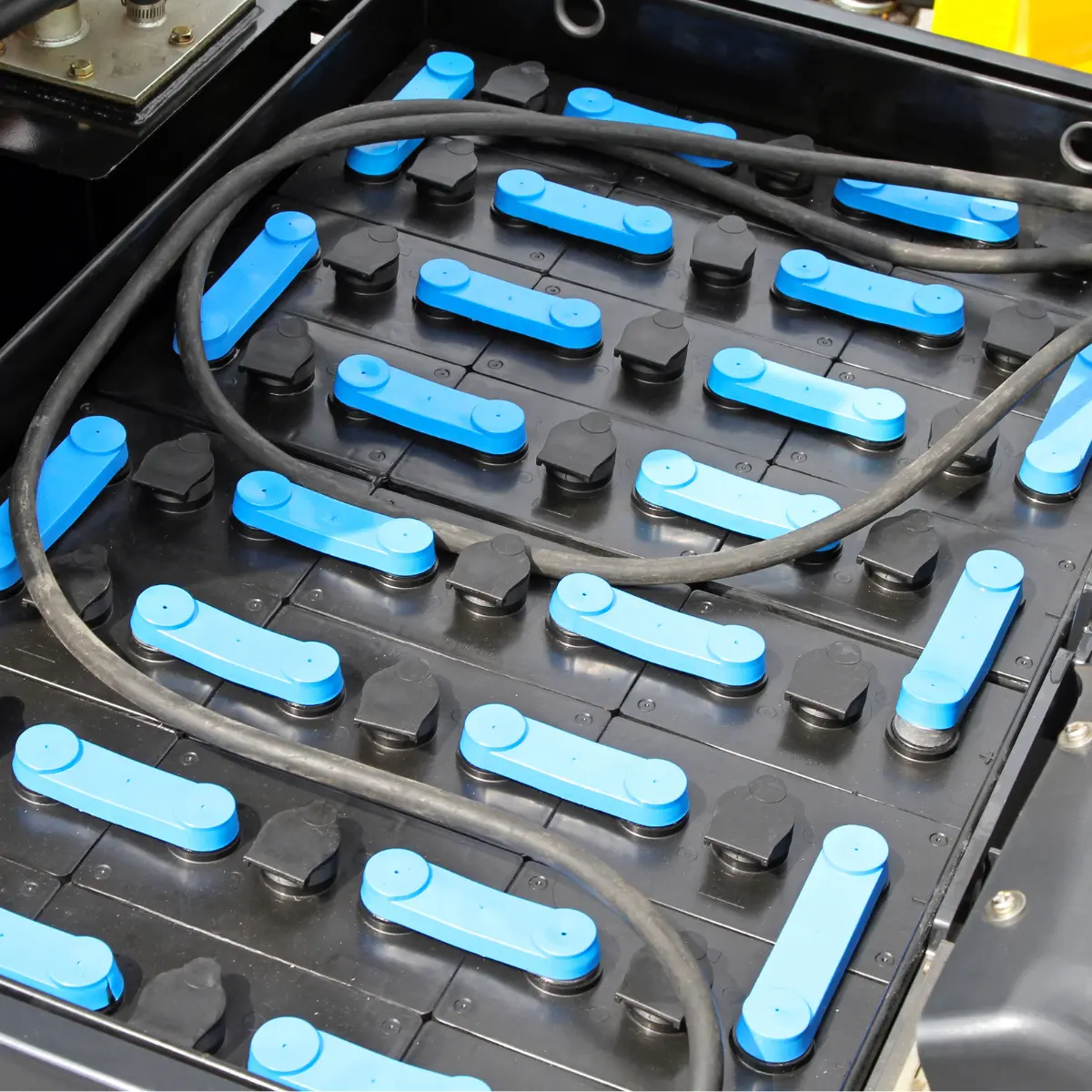
5 Signs Your Forklift Battery Needs Replacement or Maintenance
Signs Your Forklift Battery Needs Replacement or Maintenance
When productivity stalls on the warehouse floor, one culprit often flies under the radar: the humble forklift battery. Keeping a keen eye on its health could be the linchpin in maintaining seamless operations. Explore the common signals that shout for a battery check-up or swap.
The lifespan of your forklift battery
Understanding the lifespan of forklift batteries is crucial for maximizing efficiency and reducing costs. Typically, a forklift battery endures 1,500 charge cycles, translating to approximately 5 years of service. However, this duration can fluctuate based on factors such as charge frequency, adherence to maintenance schedules, and operational demands. Ensuring regular checks and balances can help in leveraging the maximum lifespan of your battery.
Declining performance and longer charging times
A telltale sign of a forklift battery needing replacement or maintenance is a notable dip in performance. If your forklift struggles to reach its maximum capacity or if there’s a significant increase in the charging time, it’s time to dive deeper. Degradation in battery cells over time diminishes efficiency, leading to longer charging periods and reduced operational time, flagging the need for a thorough examination.
Longer charging times not only impact operational schedules but also hint at underlying battery health issues that might not be visible externally. It’s essential to keep an eye on this subtle yet impactful change.
Visible signs of wear and damage
Physical inspection plays a pivotal role in battery maintenance. Visible signs such as swelling, leaking, or corrosion on the terminals are red flags. These symptoms indicate that the forklift battery has been compromised, posing risks not only to the forklift’s operational efficiency but also to workplace safety. Immediate action, whether repair or replacement, becomes paramount to prevent potential hazards.
Increased water levels and leakage
Proper water level maintenance is a key aspect of forklift battery care. A sudden increase in water consumption or the presence of leakage around the battery could signal cell failure. Such issues often result from overcharging or the natural decline of battery integrity over time. Monitoring these levels closely and addressing abnormalities promptly can help in circumventing larger issues.
Frequent need for jump starts or recharges during shifts
If the forklift battery frequently requires jump starts or mid-shift recharges to continue functioning, it signals a serious degradation in battery health. Normal operation should not necessitate such interventions. This constant need for power support not only disrupts workflow but also accelerates the battery’s wear and tear, pushing towards an inevitable replacement.
Addressing the need for frequent jump starts and additional charges during work shifts by conducting a comprehensive battery assessment can help identify whether maintenance can solve the issue or if a replacement is necessary. Ignoring these signs could result in decreased productivity and increased operating costs.
Keeping the Power On
Circling back to the essence of warehouse efficiency, the heart of it often lies in the reliability of your forklift battery. Recognizing the signs that demand attention can prevent operational hiccups and safeguard your valuable equipment. Just like any other critical component in your forklift, proactive maintenance and timely replacement of your forklift battery ensure that your operations run smoothly without unexpected downtimes.


Leave a comment